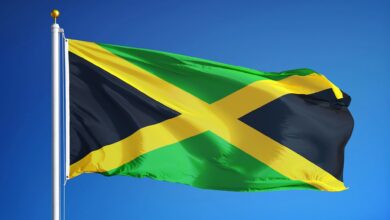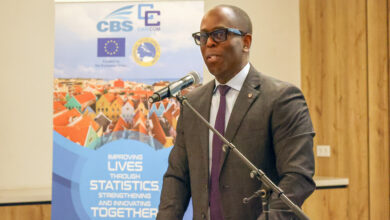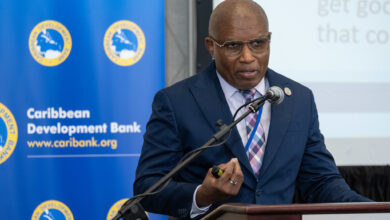(CARICOM Secretariat, Turkeyen, Greater Georgetown, Guyana) The first regional training workshop on Standards of Care for Treatment and Rehabilitation Facilities for Substance Abusers which ended in Montego Bay, Jamaica on 4 March was deemed a “resounding success” by the more than forty international and regional stakeholders who participated.
Facilitated jointly by the CARICOM Secretariat and the Inter-American Drug Abuse Control Commission (CICAD), the Meeting brought critical stakeholders, practitioners and services providers in illicit drug treatment and care to develop national and regional strategies for strengthening or establishing and implementing national treatment standards for CARICOM countries.
Issues of training and regulations; licensing and certification of drug treatment personnel as well as challenges related to resources were addressed at the workshop. The main outcome of the meeting was the identification of standards relating to critical areas in drug treatment, care and rehabilitation facilities, which would be used in tandem with other documents to draft the Universal CARICOM Handbook on Standards of Care for Treatment and Rehabilitation Facilities for Substance Abusers, by June 2009. The draft document would be circulated to participants and CARICOM Member States for national consultations before presentation to the Council for Human and Social Development in 2010.
Chair of the Meeting, Ms Beverley Reynolds, CARICOM Secretariat’s Programme Manager for Sustainable Development explained that the Meeting also identified and discussed strategies to ensure adoption, implementation and enforcement of the standards, once they were completed.
Commenting on the outcomes of the two-day meeting, Dr Wallace Mandell, Professor Emeritus at the John Hopkins Bloomberg School of Public Health declared that the success of the meeting was due largely to the leadership of the CARICOM Secretariat and to the positive synergies it had harnessed in bringing together such a dynamic group of stakeholders who demonstrated commitment and tenacity in getting the work done despite the challenges.
Noting that the anticipated handbook on standards of care would the raise the bar of excellence in drug treatment services and rehabilitation facilities, Dr Mandell, who was one of the presenters at the Meeting, expressed hope that all CARICOM countries would accept and own the standards once they were completed and apply them to their treatment programmes. He said further that he was “very impressed” with the progress made by the Community in developing treatment programmes and raising the standards of care for persons suffering from substance abuse and related illnesses and challenged the practitioners to be creative in finding ways to support and sustain the services they provided without sacrificing standards.
His sentiments were underscored by Dr Anna Chisman, Head of Drug Demand Reduction at CICAD who explained that the follow-up activities including region-wide sensitisation would be critical in ensuring that the standards were owned by practitioners. She however expressed confidence that the CARICOM Secretariat would provide effective leadership in process and reiterated CICAD’s support to the Secretariat.
Several other participants including Mr Pernell Clarke, CICAD’s Inter-American Observatory on Drugs Specialist said he was particularly pleased that there was a tangible plan to move forward and anticipated that within the next two years, the Community would have established standards to guide practice in the drug treatment and rehabilitation services sector.
The outcomes and rich discussions from this workshop would be fed into the meeting of the European Union, Latin American and Caribbean (EU-LAC) countries which commenced on 5 March at the same venue and focuses on improving drug treatment services in EU-LAC cities.





